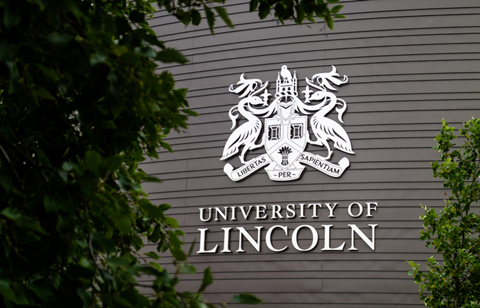
Employee Benefits Reset 2020: The University of Lincoln has successfully aligned its benefits strategy to meet the expectations and demands of employees during the Covid-19 (Coronavirus) pandemic.
During the Employee Benefits Reset online series, Ian Hodson, head of reward at The University of Lincoln, led a session on aligning benefits to match the new normal, drawing back on what the university has introduced to best support its employees that are working through the pandemic.
Hodson explained the university went through a number of stages to ensure that the workforce could deal with the changes that unexpectedly occurred due to the pandemic. The five stages were resolve, resilience, return, reimagination, and reform. "We are now in the return stage," he explained. "When we are starting to plan out some return initiatives. In the coming months, we hope that we can begin to look at the reimagination and reform stages."
Hodson added that there were a number of communication lines that were broken down due to the pandemic and the crisis had a significant impact on many areas across the business, such as cash flow. This resulted in the university having to introduce voluntary redundancies, stall promotions and downsize recognition strategies. The university, like many other organiations, had to make difficult decisions to secure as many jobs as possible.
Due to the financial constraints of the Coronavirus pandemic, the university had to think outside of the box when it came to rewarding its employees on a low budget. Hodson said: "We had to think about what we were rewarding and how. Many bonus rewards that were active before the pandemic had to change. We had to focus on motivation and recognition for specific aspects of work when pay was not as accessible as it once was before."
Hodson explained how the university assessed the needs of its now agile workforce, and how to reward those employees who were adapting well and thriving while supporting productivity and wellbeing along the way. Hodson believes social wellbeing and isolation are common risks of employees working remotely, as well as employees lacking growth due to not picking up on conversations in the office.
In response to these discoveries, the university enhanced many of its initiatives including reviewing its employee assistance programmes, increasing its mental health first aid provisions, creating virtual recognition awards, as well as moving staff inductions and one-to-one catch-ups online. Hodson continued: "We brought back many initiatives such as cycle-to-work schemes and suggestion schemes, these have been very popular as staff hobbies change."
The university also introduced a number of Coronavirus-specific initiatives, such as its new website Homehub, which educated employees on how to work remotely well, as well as publishing employee stories so everyone can keep track of what peers are doing while away from the office. Hodson also explained how the university introduced a website called Lifechoice, providing employees with education on financial decisions such as lifetime savings.
"With employees working in a more agile way, we introduced on-demand videos and articles to create a line of communication to prevent employees from feeling in the dark. These new communication channels will not only help us now but they will also be extremely useful in the future."
Hodson concluded by sharing data from a graduate insights report, finding that 82% of graduate believe it is important for them to meet a business representative to get a feel of whether employees are happy. Additionally, 29% believe that training and development is the most important aspect of finding a new job.
"The pandemic has been a real opportunity to think about how we are meeting the demands of our current and future employees. Coronavirus is probably going to be here to stay, so these are challenges to address for the future."







![[FisherA]_portrait_web_crop_newstyle](https://d1m12snq5oxhll.cloudfront.net/Pictures/100x67/9/2/6/108926_fishera_portrait_web_crop_newstyle_714878.jpg)



